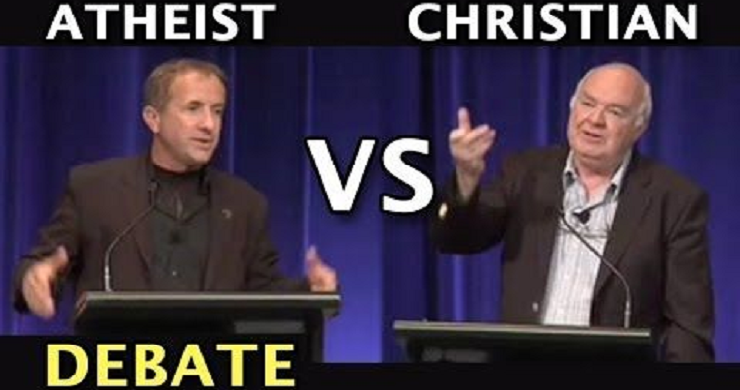Faith vs. Reason: Exploring the Intersection of Science, Philosophy, and the Existence of God
 In the ongoing discourse between science and faith, few debates capture the depth of this intellectual battleground as vividly as those between skeptics and theologians. The YouTube video “Does Science Point to Atheism or Theism?” presents a thought-provoking discussion between Michael Shermer, a renowned skeptic and atheist, and John Lennox, a mathematician and Christian apologist. Their exchange is a compelling clash of worldviews, dissecting whether scientific discoveries strengthen the case for atheism or provide evidence for a theistic understanding of reality.
In the ongoing discourse between science and faith, few debates capture the depth of this intellectual battleground as vividly as those between skeptics and theologians. The YouTube video “Does Science Point to Atheism or Theism?” presents a thought-provoking discussion between Michael Shermer, a renowned skeptic and atheist, and John Lennox, a mathematician and Christian apologist. Their exchange is a compelling clash of worldviews, dissecting whether scientific discoveries strengthen the case for atheism or provide evidence for a theistic understanding of reality.
Shermer argues from a materialist perspective, emphasizing that science operates on empirical evidence, and nothing within the framework of modern physics or biology necessitates the existence of a divine being. He suggests that belief in God arises from cognitive biases and the human need for pattern recognition rather than any objective proof. Lennox, on the other hand, counters with the argument that science itself is grounded in rational intelligibility, something that he believes is best explained by a Creator rather than random chance. He points out that many of the great pioneers of science were believers, seeing their work as uncovering the logic embedded within nature by a higher mind.
This debate reflects broader themes explored in the Species Universe blog post “Does God Exist? Michael Shermer vs. John Lennox”. Both the video and the blog post delve into how reason and belief intersect, examining whether advancements in quantum mechanics, cosmology, and the study of consciousness align with a purely atheistic model or suggest an underlying intelligence in the fabric of reality. In exploring these questions, viewers and readers alike are invited to critically assess their own perspectives on one of the most profound and enduring mysteries of existence.
Key Takeaways:
- Science and Faith Are Not Necessarily Opposed – John Lennox argues that science and belief in God are not mutually exclusive. He emphasizes that many foundational scientific discoveries were made by individuals who saw their work as uncovering a rational order in the universe, which they attributed to a divine mind.
- Atheism and Theism Offer Different Explanations for Reality – Michael Shermer maintains that science operates purely within a naturalistic framework and does not require a deity to explain the workings of the universe. He contends that human cognition naturally seeks patterns, sometimes creating religious beliefs where none are needed. Lennox, however, counters that atheism itself is a belief system that fails to account for why the universe is intelligible in the first place.
- The Fine-Tuning of the Universe Remains a Key Debate – One of the central points of contention is whether the precise conditions necessary for life suggest design or can be explained by natural processes. Lennox argues that fine-tuning is strong evidence for a Creator, while Shermer attributes it to probability, the multiverse hypothesis, or yet-undiscovered natural laws
“The very fact that we can do science, that the universe is intelligible, is in itself evidence that points beyond the material world.” – John Lennox
Relevant Content:
Reference:
- Question Everything (YouTube Channel)

Leave a Reply